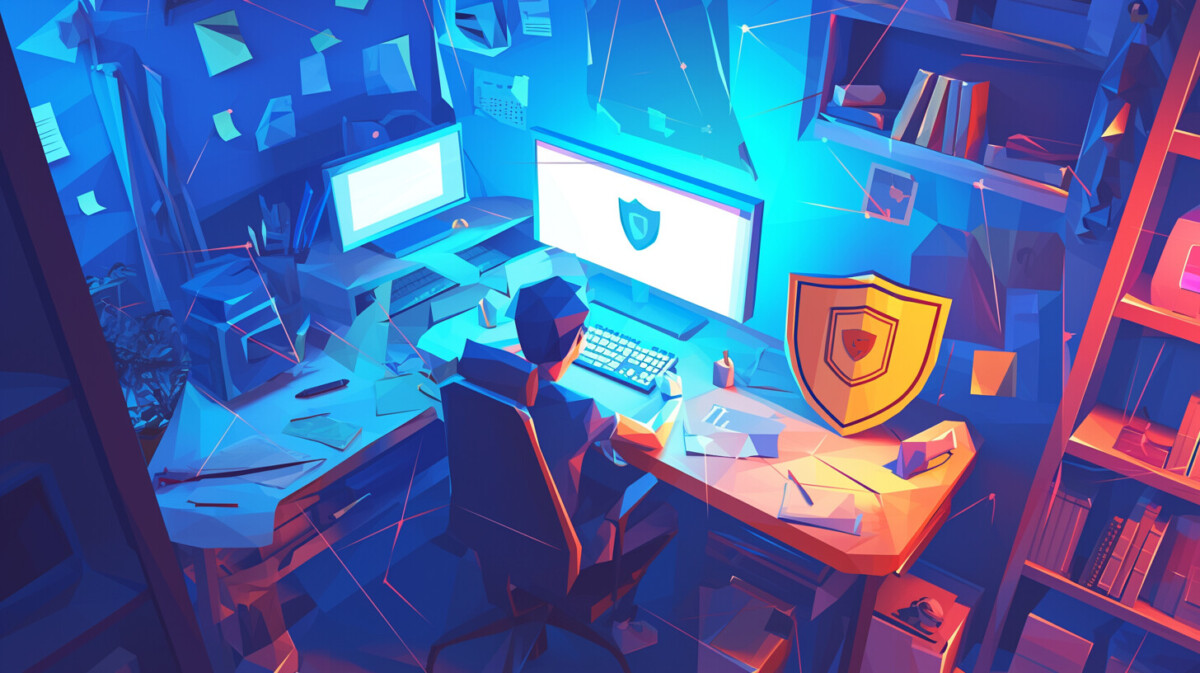Today, most web browsers offer a private browsing mode which allows you to browse the internet incognito. At least in theory. Because if we are to believe the latest revelations in the matter, in particular those concerning Google and Chrome’s incognito mode, nothing is less certain…
June 2020, William Byatt, Chanson Brown and Maria Nguyen file a lawsuit against Google. The reason ? According to them, Chrome’s incognito mode, which normally protects the privacy of Internet users who use it, is far from flawless. Tracking and collection of data, retrieval of information using advertising tools, identification of Internet users: no data is safe. And all this, of course, without the users’ knowledge and in complete contradiction of the primary purpose of such a mode of navigation.
Settled with a huge sum of dollars by Google (nearly five billion nonetheless), this case questions the reliability of the private browsing modes offered by internet browsers and, more generally, those of the companies behind it. Can we really trust them to protect our personal data and more generally, our privacy when we browse the internet? The answer is far from simple.
Private browsing is not anonymous browsing (and the difference is important)
Contrary to what one might believe at first glance, private browsing and anonymous browsing are two very different things. And this difference is far from trivial when we speak in terms of the protection of privacy and the confidentiality of personal data.
Private browsing, also called incognito mode for Chrome users, is a mode that, once activated, disables certain browser features. The main one, and arguably the most important, concerns tracking cookies and information capture. In either case, no information is recorded by the browser, which is a good thing in terms of confidentiality.
The other advantage of private browsing comes at the end of the session. Closing your private browsing window means deleting cookies, browsing history or even the list of downloaded files (even if the files themselves remain kept on the PC’s hard drive).
On paper it seems perfect, but the reality is quite different. Because private browsing does not ensure your anonymity in the sense of cybersecurity. For what ? Quite simply because many third parties can still have access to information about you and your habits, without you knowing it.

The sites you visit, for example, keep a trace of your visit and your journey, in particular thanks to your IP address which remains the same. This is also the case if you decide to connect to one of your accounts (email, social network, online store). It also doesn’t stop your internet service provider from knowing everything you do.
Finally, and this is important enough to be underlined: private browsing in no way protects against malwareTHE phishing or any other practice of the same ilk that may undermine the integrity of your data or your private life.
So why use private browsing?
Let’s be clear, if you’re looking for a tool to protect your personal data and privacy on the web, private browsing is not the ideal tool. Should it be banned anyway? Not necessarily, because private browsing can be useful in certain specific cases.
The main one undoubtedly remains that of computer sharing. If you ever use a public or shared computer, private browsing can help protect your online activity. The absence of recording of cookies and the deletion of the browsing history prevents other users from knowing what you may have done, in particular the sites visited during your session.

Another advantage to the absence of cookies: the disappearance of any form of tracking. With each new private browsing session resembling a blank sheet, you will never be subjected to targeted advertising in any form. This absence of tracking can also be practical if you are planning to go on a trip, as train or plane ticket sales sites cannot inflate prices following your previous visit.
How can you really protect your privacy when browsing the internet?
While private browsing can have some benefits, it is not a good way to protect yourself when surfing the web. If you are ever looking for a way to browse completely anonymously, while ensuring the security of your data, there are no thirty-six solutions: you are going to have to use a VPN. The VPN, or Virtual Private Network (virtual private network in good French), is a small program which is inserted between your computer and remote servers.
A very practical intermediary in that it outsources your IP address and encrypts all the data that passes through it. Bottom line, no one, not even your internet service provider, can know what you do when you connect to the internet. With a VPN, your private data remains private, like your web activity.

But that’s not the only benefit of using a VPN. Many market players include additional protections in their subscription plans. Protections such as an ad blocker, a tracking cookie blocker, or even anti-malware can be made available to you to fight against attacks on your data. A point which is absolutely not covered by private browsing, despite its importance at the moment.
Today, NordVPN is one of the major players in the VPN market thanks to a solid reputation, a very comprehensive service offering, foolproof ease of use and extremely attractive pricing. Right now, you can enjoy NordVPN services for two years from 3.39 euros per month.
